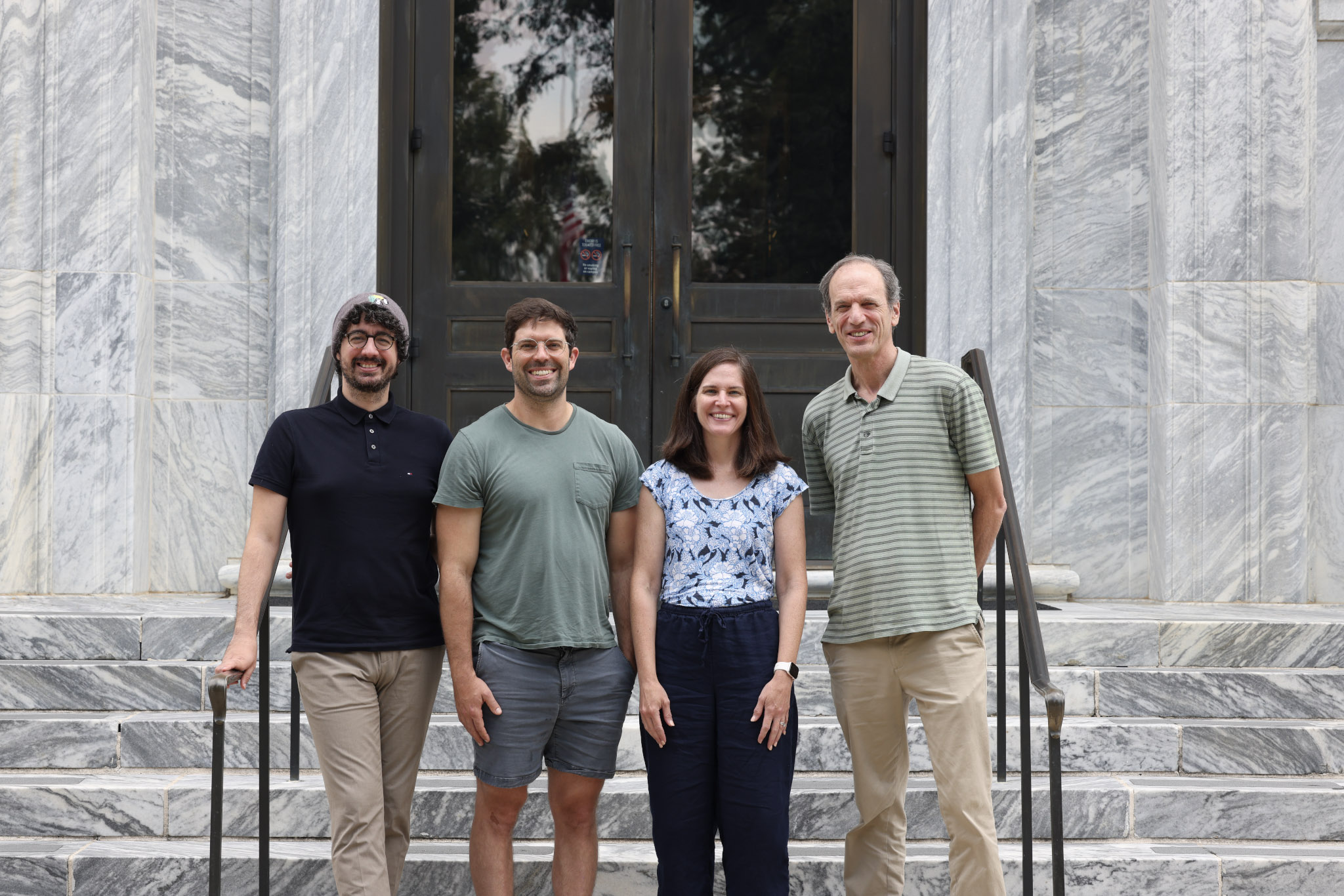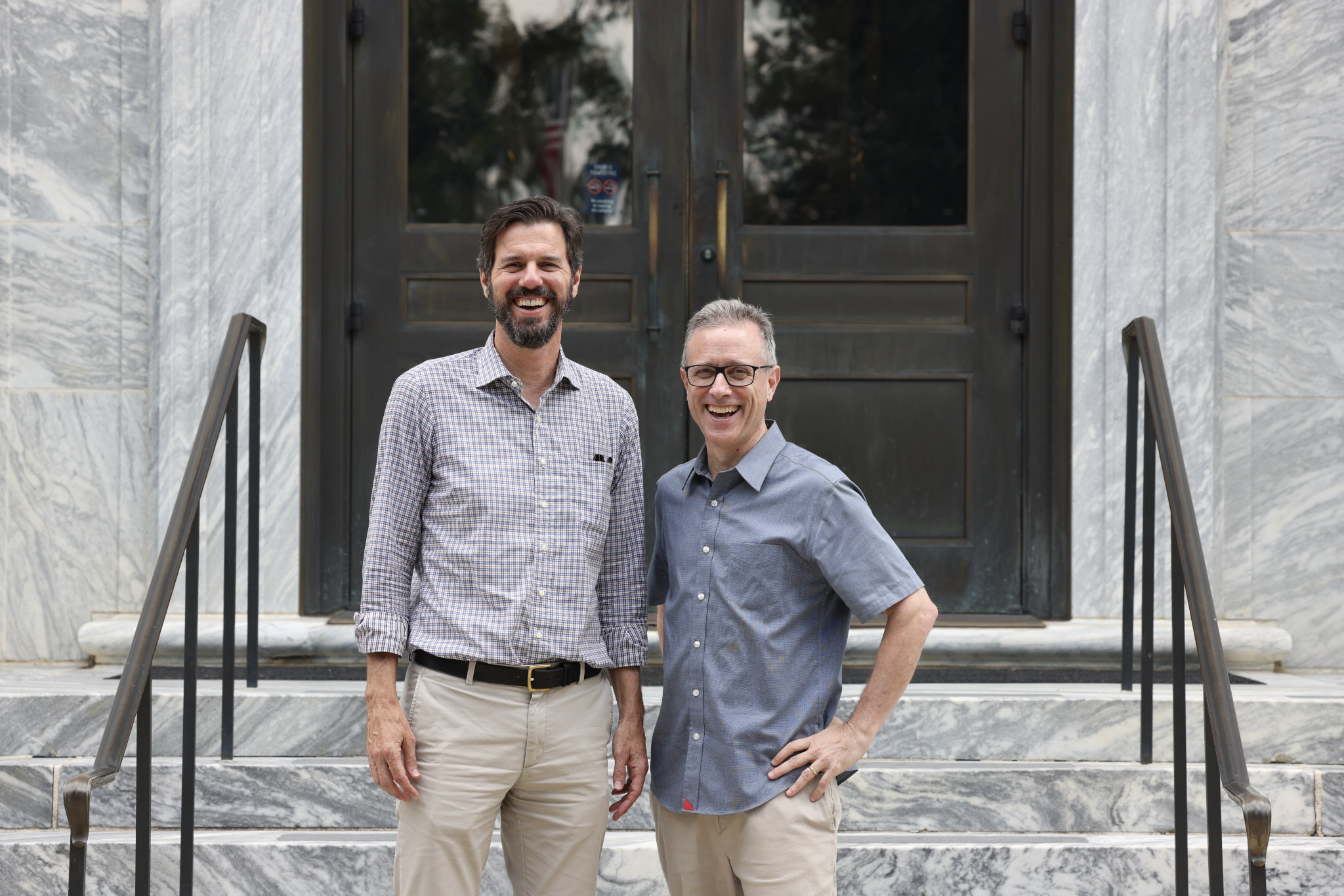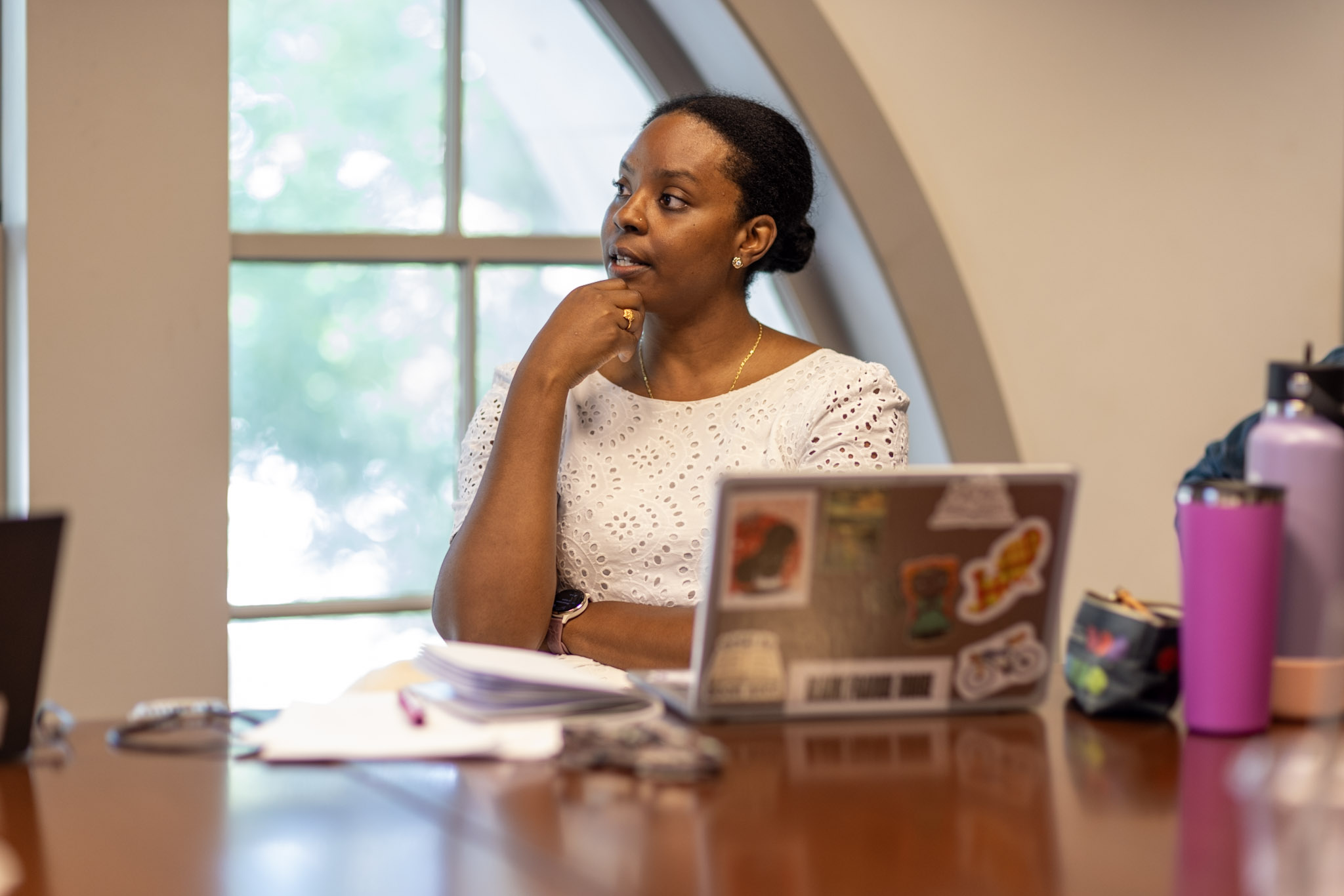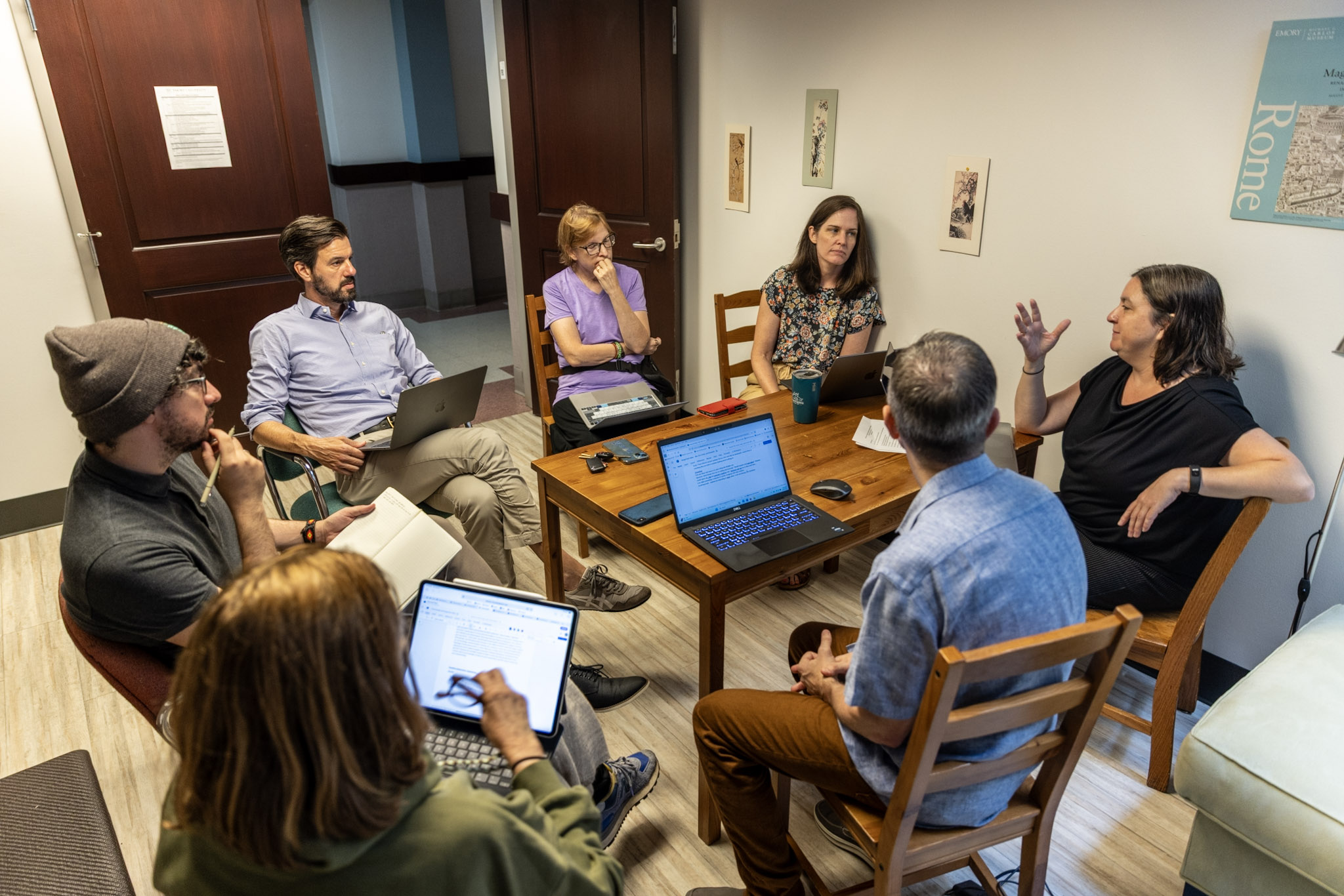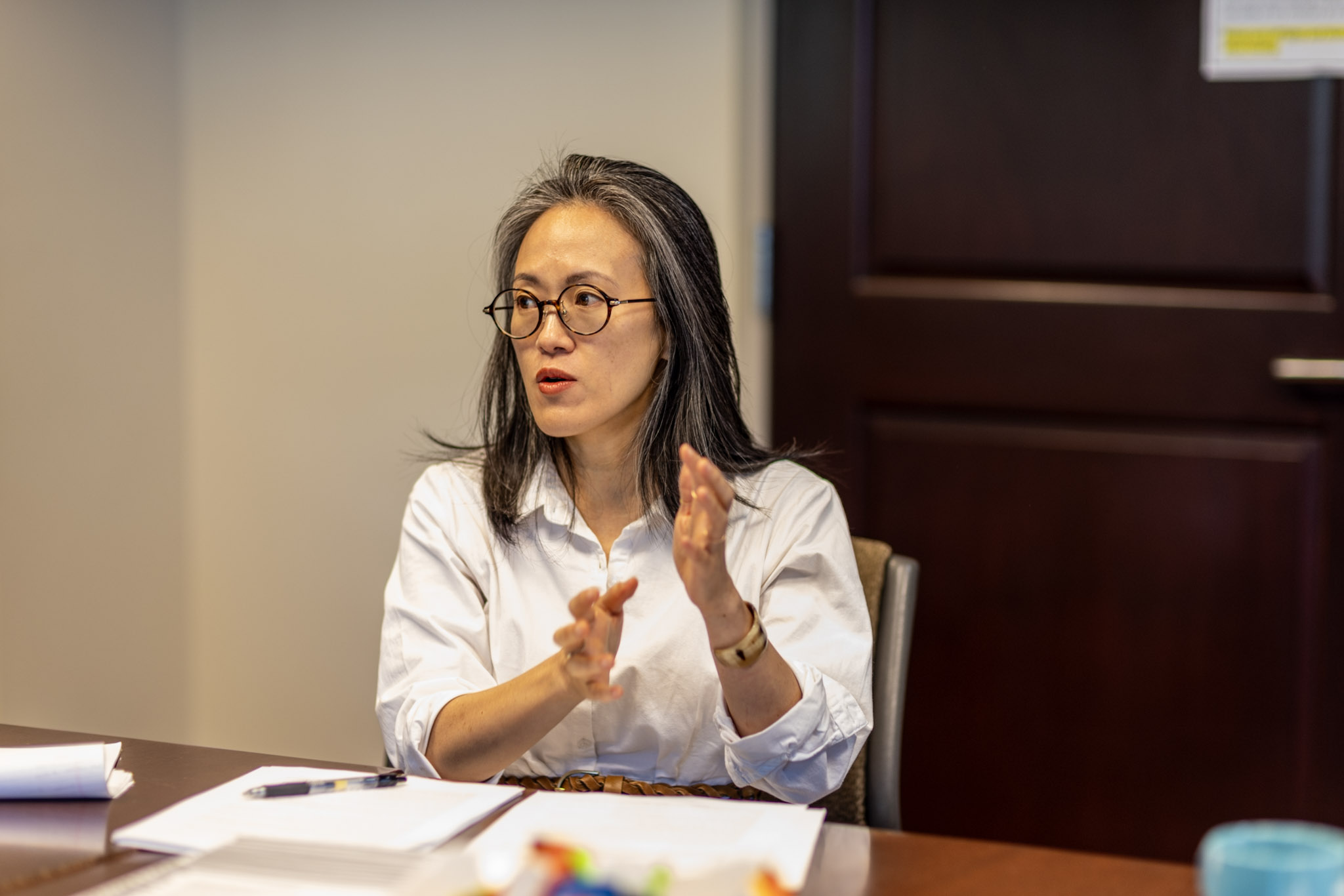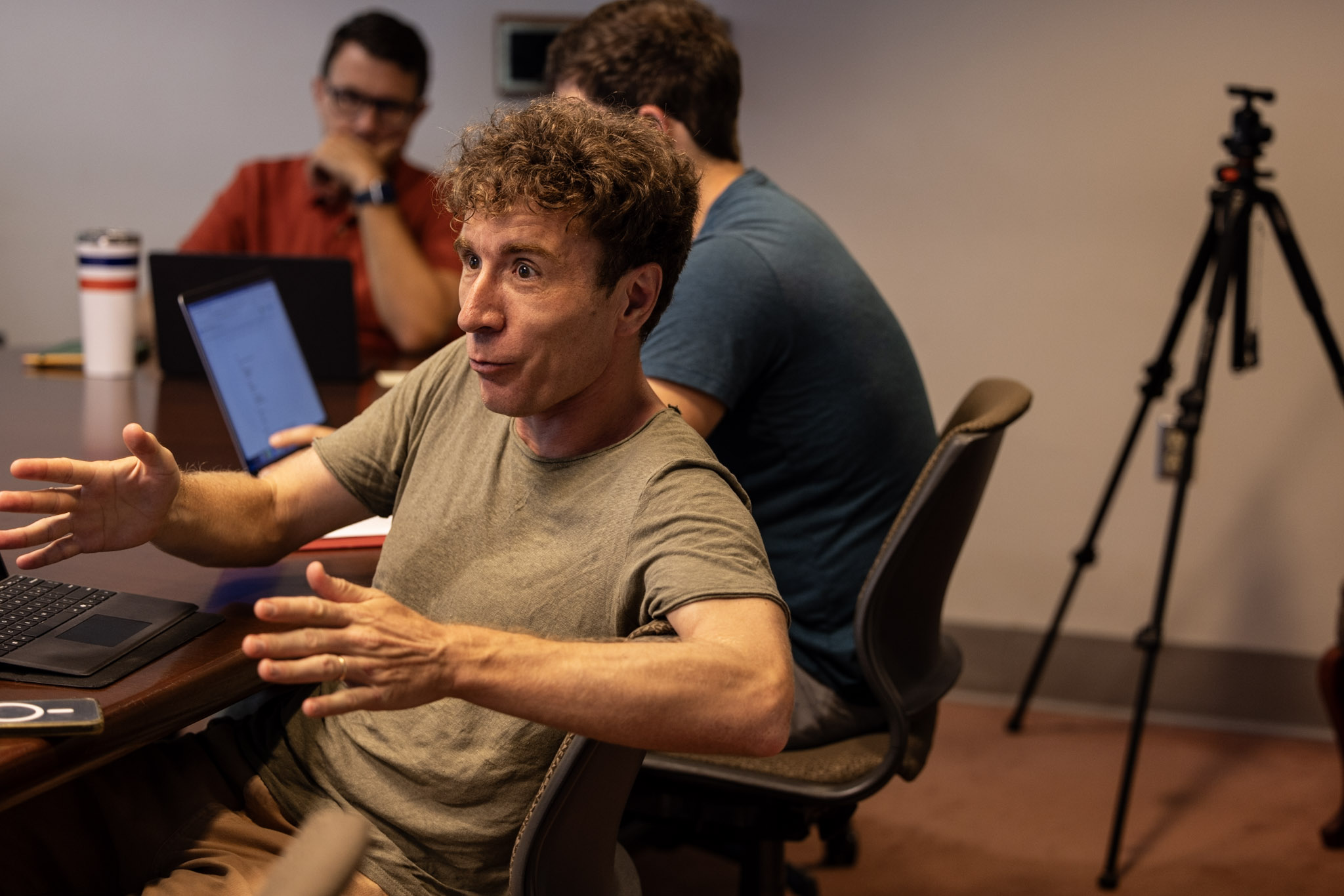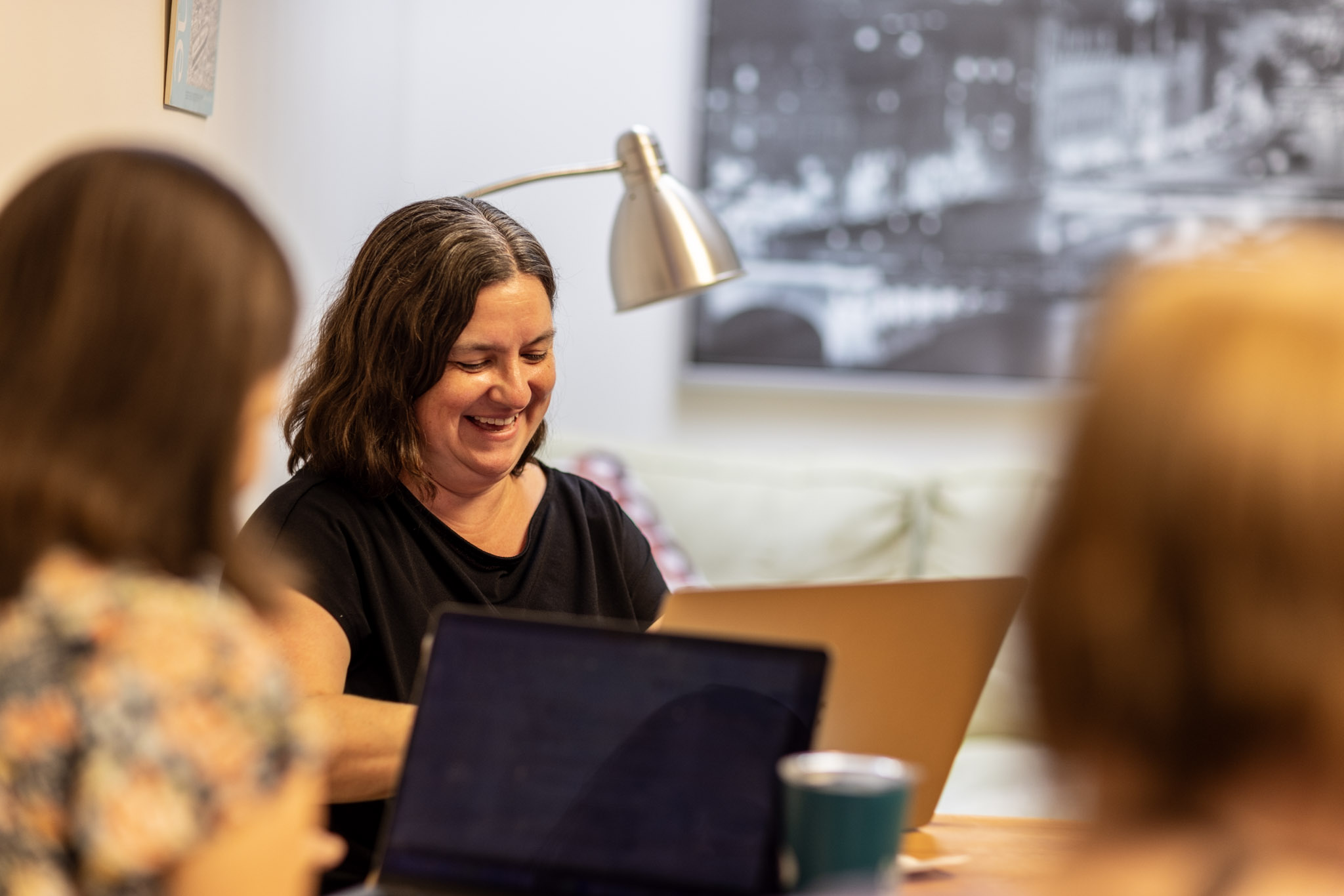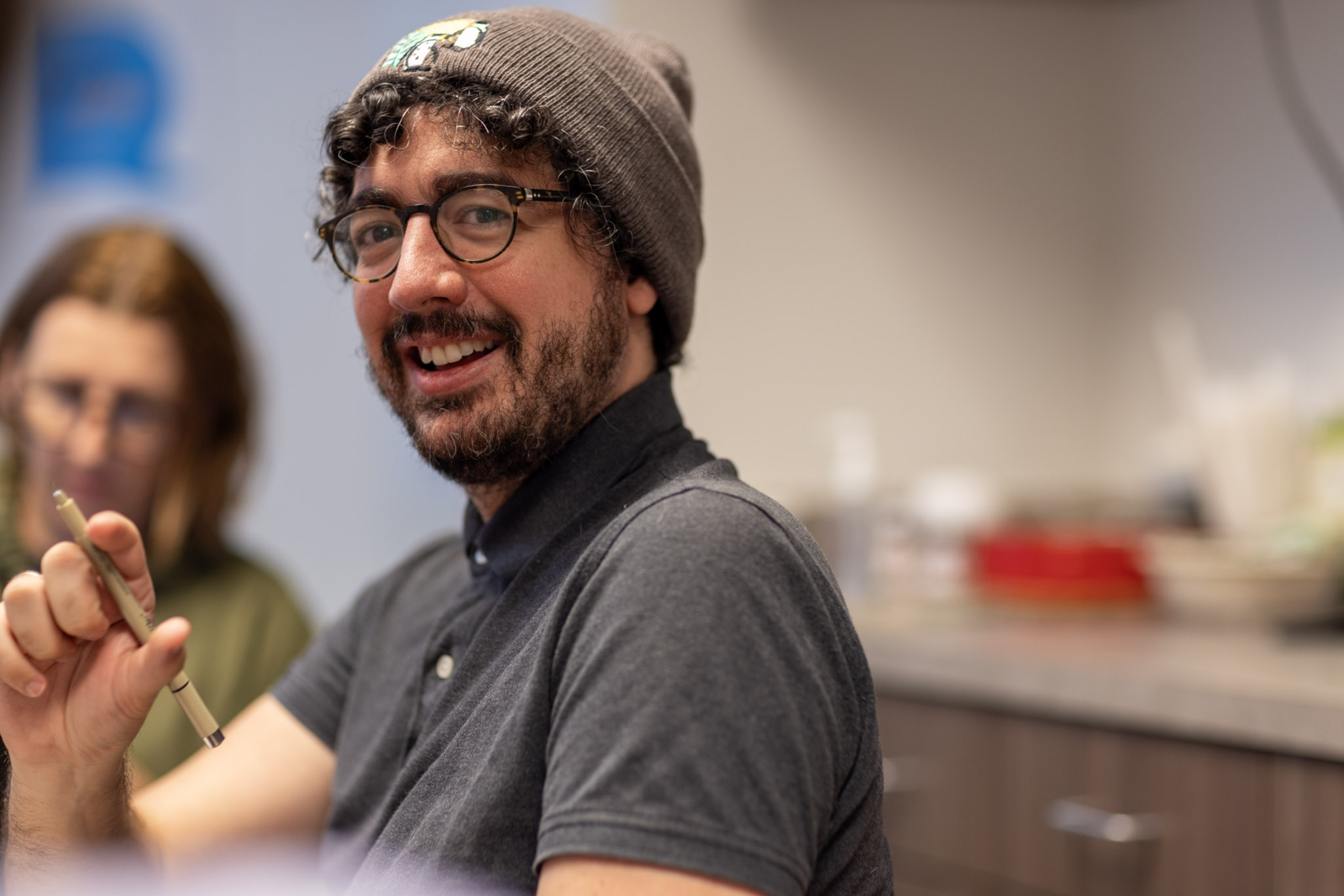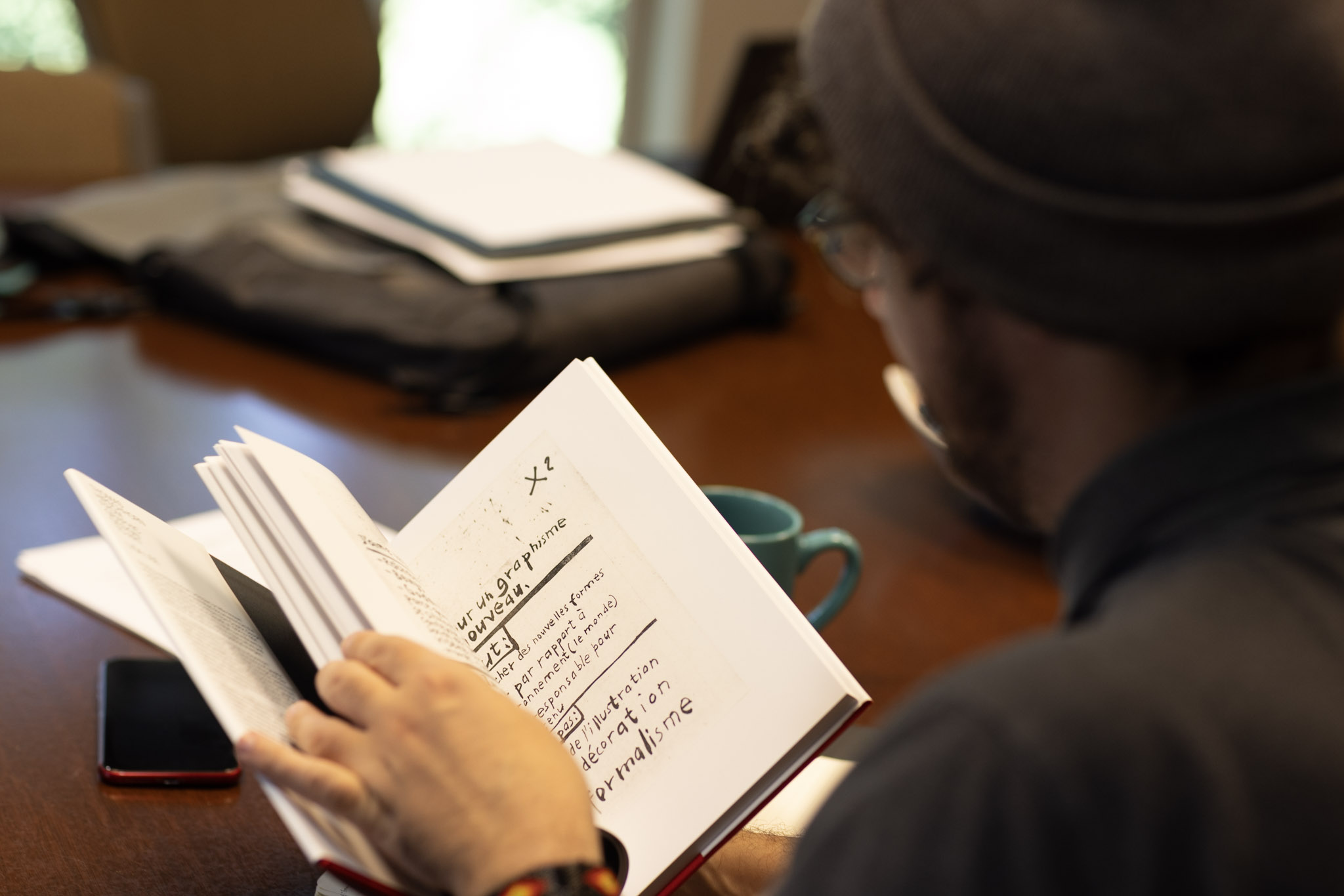This summer, 14 professors from the Emory College of Arts and Sciences huddled together for five days, sharing which books mattered most to them and why. Soon, a theme emerged: The value of observation with an open mind and the patience to be curious.
By August, they developed an interdisciplinary first-year seminar built around a common syllabus and readings centered on attention and distraction. Faculty from 13 different departments — from physics to religion to languages — will teach the seminar. Four pilot sections of the seminar will launch in the spring 2026 semester, with a goal of offering 16 sections next academic year and 30 sections in 2027-28.
The seminar is part of Emory College’s new “Asking Big Questions” program, which seeks to reinvigorate the humanities by emphasizing key liberal arts skills, such as critical thinking, and connect them to students’ professional goals, regardless of major.
A shared $275,000 Emory College-Oxford College grant from the Teagle Foundation is funding the faculty-led innovation. Oxford College launched a similar cohort initiative this fall with its Professional Advancement through Humanities Study (PATHS) certificate program.
All Oxford College students in their first semester take one of four signature seminars — Social Responsibility and Ethics, Global Engagement, Creativity and Innovation, or Communication and Critical Thinking — as part of the PATHS program and read from shared texts. Oxford College students recently attended the Oxford Theater production of an adaptation of one of those texts, “Hakawatis: Women of the Arabian Nights,” and held a joint discussion to connect their classroom experiences to the performance.
Emory College’s initiative will operate similarly with shared texts. The core syllabus includes readings from Sophocles, Simone Weil and Rabindranath Tagore, as well as a number of extracurricular activities that students in all sections will experience together.
Activities include a presentation from the Emory Center for Contemplative Science and Compassion-Based Ethics, nature walks, visits to the Carlos Museum and Emory Planetarium, meetings with alumni, and large-scale public reading parties around campus — all focused on how we decide what to pay attention to and what to filter out.
“All of these efforts will lead to much more intentional collaboration across the two campuses in support of students in their first two years of undergraduate studies,” says Molly McGehee, interim dean of Oxford College and co-principal investigator for the project.
Each professor will also add specific readings or events tied to their home department.
“We envision this seminar as a baseline for stimulating students’ intellectual curiosity for whatever it is they want to do,” says Samuel Candler Dobbs Professor of English Benjamin Reiss. “We want to get away from task-oriented work and move toward helping our students develop a sense of community from the opportunity to meet and learn about different perspectives from one another.”
Creating a shared intellectual experience for students required faculty to step outside their usual lanes of expertise and collaborate on common goals, says Joe Crespino, the senior associate dean of faculty and divisional dean of humanities and social sciences, who serves as co-principal investigator of the Teagle-funded project with Reiss.
“It was inspiring to see the creativity and curiosity that our colleagues brought to the workshop this summer,” Crespino says. “We think this project will energize the faculty both as teachers and intellectuals as they engage with colleagues and students to address the big, enduring questions about the human experience that are at the core of the humanities.”
The draw of intellectual collaboration
Professors who volunteered for this summer’s workshops say they were drawn to the opportunity to collaborate across courses, to create shared experiences for students and to show, from day one, how the broad skills of a liberal arts education will add value to whatever life they lead.
“We want to affirm that they will benefit from developing the ability to read widely, think deeply and connect through their learning to people who are not necessarily from their own background,” says Devaka Premawardhana, Winship Distinguished Research Associate Professor of Religion.
“With so much uncertainty in the career landscape, those are the transferable skills that are widely applicable to a life well lived and to whatever job life leads to,” he adds.
The project will expand over the three years of the Teagle grant. Reiss envisions involving more faculty to help refine the syllabus and teach sections of the course, in addition to developing “field trips” into Atlanta for different activities.
Faculty will also revisit the theme and contents of the course in future workshops, so that fresh ideas will continue to guide the student experience.
Johanna Montlouis-Gabriel, an assistant professor of French and decolonial pedagogies, is eager for the opportunity to lead a seminar. Sitting among faculty working this summer, she felt part of an intellectual community that she wants to help students build and experience.
“The whole project is really exciting,” says Montlouis-Gabriel, who hopes to encourage questions of perspective by including essays from Maryse Condé and stories from Assia Djebar.
“We want to get at the richness that comes with experiential learning, with our students tending to themselves and to others through reading and writing and connecting,” she adds. “We want to cultivate community through that sense of experiencing something for the first time, together.”All photos by Kizzy Williams

